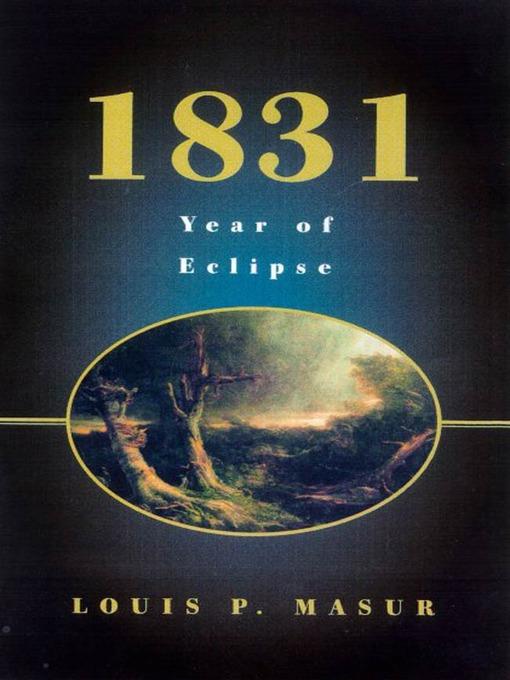
1831
Year of Eclipse
کتاب های مرتبط
- اطلاعات
- نقد و بررسی
- دیدگاه کاربران
نقد و بررسی

February 1, 2001
On February 12, 1831, a full eclipse of the sun darkened America's skies. Newspapers nationwide heralded its arrival, and commentators congratulated themselves that the "idle fears and gloomy forebodings"--the past superstitions attached to such events--had been replaced by "pleasing admiration" of the wonders of nature and society's progress in scientific understanding. However, says Masur (Rites of Execution), professor of history at the City University of New York, what unfolded in 1831 belies this chauvinistic claim of America's advancement. Rather, he builds a case that America's future faced inevitable upheaval directly linked to the failure of the founders to resolve two fundamental conflicts: the contradiction between a country founded on the "inalienable rights of man" embracing the cruelty and inhumanity of slavery, and the tension between a federal government intent on preserving the Union and the states' claims of uncontestable sovereignty. Masur draws upon an exceptionally rich array of voices, quoting generously from figures as divergent as slave rebellion leader Nat Turner, abolitionist William Lloyd Garrison, Ralph Waldo Emerson and Andrew Jackson. Masur vividly chronicles the plight of the Cherokee, who despite their willingness to cooperate with the U.S. government, were forced from their homeland and marched west on the infamous Trail of Tears. Tocqueville traveled to the U.S. in 1831, prompting him to write Democracy in America, and as Masur notes, Tocqueville's prescient observations illuminated not only the intractable problems of slavery and race in America but also the extraordinary uniqueness and energy of America's citizens. Masur's accessible and intriguing work, which appeals to a wide and diverse audience interested in American history, raises the year 1831, not necessarily one that stands out in most Americans' minds, above insignificance. Illus. not seen by PW.

























دیدگاه کاربران